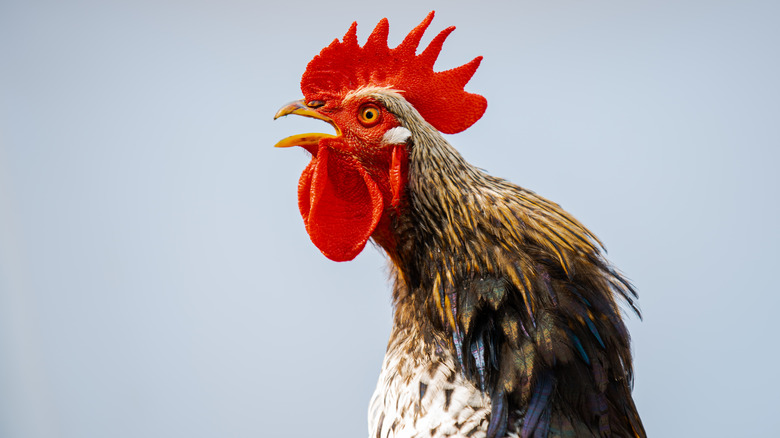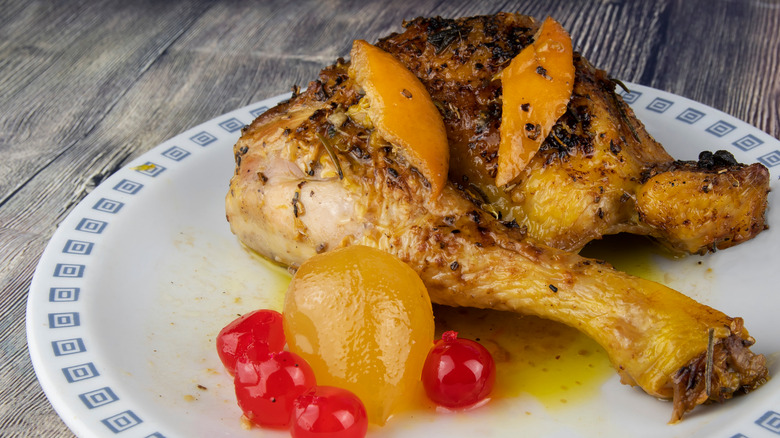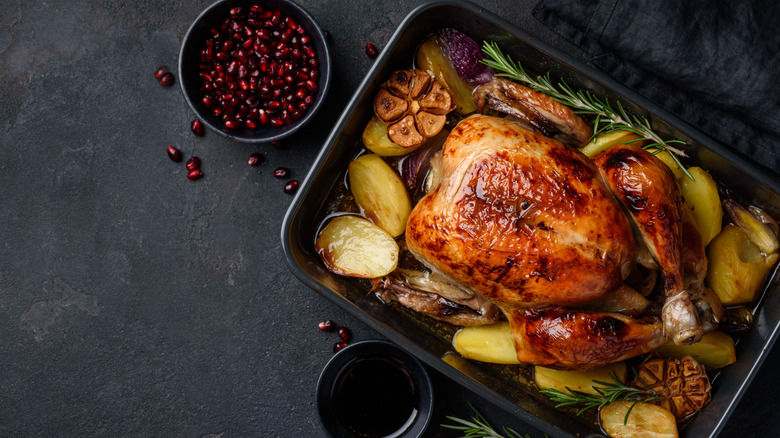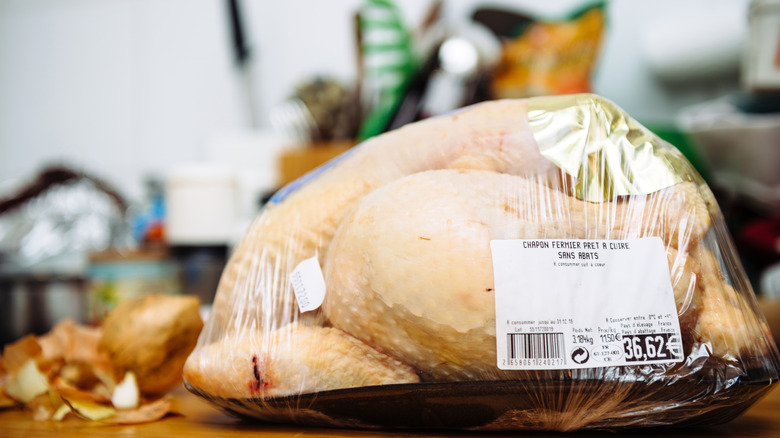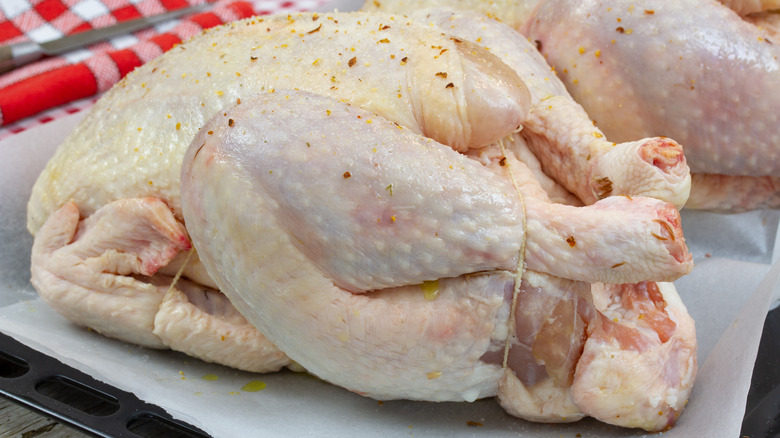What Is Capon And Does It Taste Different Than Chicken?
Have you ever heard of capon? Capon is a type of poultry: more specifically, it's a rooster that gets castrated before reaching sexual maturity, causing differences in the bird's flesh that make it a more desirable and expensive option than plain old chicken meat (via The Spruce Eats). The lack of sex hormones in the bird — along with its rich diet of milk, porridge, or bread — yields a more tender meat with a luxurious flavor and texture (via Modern Farmer).
Bigger than a chicken but smaller than a turkey, capons were far more common in the past than they are now, and Modern Farmer notes it is not always easy to find these birds, either at the store or on a restaurant menu. But if you can, they're worth trying out. Read on to learn more about capons and why they make for a tastier dinner than their more traditional chicken counterparts.
What does capon taste like?
As explained by Owlcation, the practice of "caponizing," or castrating, male chicks started as a way to breed fatter birds when there were laws against doing so for roosters, but it also has some practical reasoning. When male chicks are born into a flock of chickens, they eventually grow into roosters, which can complicate matters as one flock of birds can only have one rooster. Any more than that, and the two males will fight each other for dominance. Many farmers, therefore, would routinely castrate male chicks between six and 12 weeks of age to prevent such quarrels.
This change to the bird's sex hormones results in an accumulation of extra fat, both below the skin and within the muscle of the bird, Modern Farmer writes. Capon meat is therefore more buttery and tender than chicken meat, and this extra fat also brings more flavor to the bird. Per D'Artagnan, capons tend to have ample amounts of white meat, and they taste less gamey than a rooster, whose flesh Owlcation calls "stringy and pungent."
How to cook with capon
Overall, cooking capon is similar to cooking chicken, but due to its added fat content, the bird tends to be more forgiving and won't dry out as easily, The Spruce Eats notes. Roasting a whole capon for a special occasion such as Thanksgiving is a popular way to prepare the bird, and specialty meat purveyor D'Artagnan recommends roasting the bird for 17 minutes per pound. Typically larger than a roasting chicken, capons range in weight from six to 12 pounds. When the bird is done, a thermometer inserted into the thickest part of the thigh should read 165 degrees, and the juices should run clear.
Another route to go with capon is braising it, which The Spruce Eats explains is a traditional way to prepare a rooster due to the toughness of its flesh. The classic French dish coq au vin braises rooster in red wine; any other braised chicken dish will also work well with capon meat.
Where to buy capon
If you've never heard of capon before, you shouldn't feel too out of the loop. Once a popular alternative to other types of poultry, today the bird has "nearly disappeared from view," according to Modern Farmer. While capons used to be fairly easy to find in a local butcher shop or even a well-curated grocery store, today it's more likely that you'll have to order one online. Specialty meat purveyor D'Artagnan has the birds for sale, as does Exotic Meat Market. But be prepared for some sticker shock: due to their high quality as well as to their elusiveness, capons are expensive, typically fetching upwards of $10 per pound. D'Artagnan's whole capons start at $85.99.
Once purchased, capon can be stored in the refrigerator for up to three days (via The Spruce Eats). Any longer than that, and you'll want to place the bird in a freezer bag and freeze it, where it will stay good for up to four months.
Capon nutritional information
A three-ounce serving of cooked capon meat with skin contains about 10 grams of fat, with about 3 of those grams coming from saturated fat (via nutritionix). It contains 73 milligrams of cholesterol, 217 milligrams of potassium, and is an excellent source of protein, containing 25 grams. It contains 1.2% of one's daily recommended vitamin A and calcium, and 7% of one's iron for the day.
Like other types of poultry, capon also contains important nutrients. It's high in niacin, a B vitamin that the body uses to turn food into energy, and which can help keep the nervous system, digestive system, and skin healthy (via Mayo Clinic). Capon is also high in selenium, a mineral that helps prevent damage to the body's cells and tissues and plays an important role in the function of the immune system (via USDA). Overall, if you can get your hands on one, capon is a tasty and unique alternative to chicken that also packs a nutritional punch.
